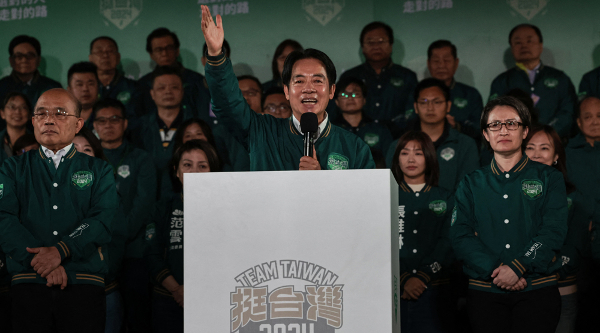image1
Taiwanís President-elect Lai Ching-te (C) addresses supporters as he stands with his running mate Hsiao Bi-khim (R) in Chinese Taipei on January 13, 2024. (Photo by AFP)
William Lai Ching-te from the ruling Democratic Progressive Party (DPP) has won Chinese Taipeiís presidential election, securing a total of more than 5 million votes.
Lai had secured 40.2 percent of the roughly 13.9 million votes cast in a poll that saw a turnout of 70.6 percent, with ballots counted from 98 percent of polling stations, according to official data from Taiwanís Central Election Commission published on Saturday.
The DPP party has been in power for the past eight years under President Tsai Ing-wen.
Laiís nearest rival Hou Yu-ih of the opposition Kuomintang (KMT) trailed in second place with 33.2 percent. His nearest rival Hou Yu-ih of the opposition Kuomintang (KMT) trailed in second place with 33.4 percent and conceded defeat.
Hou conceded defeat in the presidential vote, saying, "When the people have made their decision, we face them and we listen to the voices of the people."
The president-elect addressed people in his victory speech on Saturday, once again reiterating that he is "determined to safeguard Taiwan from continuing threats and intimidation from China."
China, which has sovereignty over the self-ruled island, warned in the run-up to the elections that Lai is a dangerous "separatist" who could trigger "cross-Strait confrontation and conflict."
The 64-year-old winner of the islandís election has promised to stick to incumbent President Tsaiís policy of maintaining the status quo, which rejects Beijingís sovereignty over Chinese Taipei.
Under the "One China" policy, almost all world countries recognize Chinaís sovereignty over Taiwan.
China has repeatedly warned Taipei that the mainlandís "reunification" with Taiwan is inevitable.
Saturdayís race has also been closely watched by Taipeiís major arms supplier, the United States, who also recognizes the Chinese sovereignty over the island but has long courted Taipei in an attempt to unnerve Beijing.











